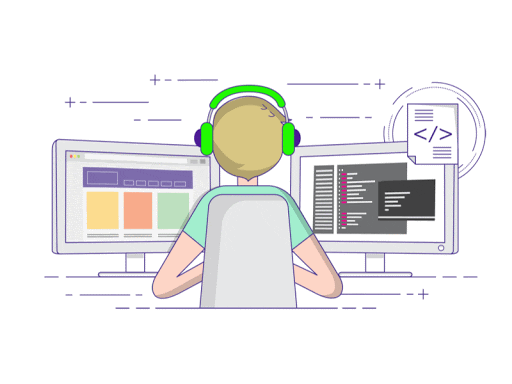Facebook IPO, youre no Google in five big ways Co
Post# of 99554

Facebook IPO, you’re no Google — in five big ways
Commentary: This time, it’s harder for small investors to win big
By John Shinal
SAN FRANCISCO (MarketWatch) — When it comes to comparing blockbuster Internet IPOs, make no mistake: The sequel produced by Facebook will be a bigger hit than the original from Google eight years ago.
At the same time, however, the very success of this week’s Facebook (NASDAQ:FB) offering will make it harder for retail investors to make the kind of money on its shares that they did on Google (NASDAQ:GOOG) , which tripled in their first year.
Simply put, if you don’t already own Facebook shares, you’re late to the party.
1. A different investing climate
The current mania for Facebook shares had no parallel back in the day of Google’s IPO. In the summer of 2004, with the memory of the dot-com bust still fresh, the mood among big-moneyed institutional investors for tech stocks was downright hostile. The only other tech company of note to execute an IPO that year was Salesforce.com Inc
What’s more, multiple gaffes by Google’s founders in the run-up to the IPO — including an ill-advised Playboy magazine interview that had to be included in the prospectus — damaged the management team’s credibility.
Confusion over the unorthodox, quasi-Dutch auction method used to allocate Facebook shares also hurt the offering. In the end, Google was forced to reduce the price of its IPO by nearly one-third. Moreover the company reduced the number of shares sold by 20%.
Consider this fact: Three weeks after the offering, you could have bought Google shares for the same price they opened at on the day of the IPO.
By contrast, the Facebook IPO has been by the book, and the only thing resembling drama has been CEO Mark Zuckerberg’s decision to wear a hoodie for his first road show meeting.
Facebook’s debut has been preceded by more than a half-dozen other Internet IPOs, which have helped drum up interest in social media companies. Given that Facebook is more profitable than any of those other companies, including LinkedIn, Groupon and Zynga, their offerings have served as a perfect preview to Facebook’s.
The road show leading up to this epic deal has received the kind of attention once reserved for rock star reunions. Demand for its shares is so strong that on Monday the company raised the bottom end of its share price range by 21%, to $34 a share vs. $28 previously.
While that’s great for Facebook and its early investors who are unloading the shares, the price-hike will make it that much tougher for retail investors to cash in. (see No. 5 below)
2. A bigger, older company
Facebook’s larger offering shouldn’t be a surprise. On the eve of its IPO, it’s an older and larger company than Google was when it went public. It is also growing more slowly at this point, compared with the numbers Google was posting back then.
During the quarter in which went public, Google had revenue of $805.9 million, more than double the sum it recorded the comparable quarter a year earlier.
For all of 2004, Google sales increased even faster than that, totaling to $3.2 billion. By comparison, Facebook in its current quarter will post revenue of $1.25 billion if it continues on roughly the same sequential revenue-growth trajectory it has been on over the past eight quarters. That figure would represent growth of 40% from a year earlier.
In annual terms, analysts expect Facebook sales just north of $5 billion, a 35% rise from 2011.
3. A bigger addressable market
Google and Facebook are both in the business of selling Internet advertising, but it’s a very different business today from what it was eight years ago.
Online advertising spending totaled $9.6 billion in 2004, and was rising at an annual rate of 33% according to research from the Internet Advertising Bureau, an industry trade group. Last year, that figure reached $31.7 billion, a rise of 22%.
If such spending rises a reasonable 20% this year, it will reach $38 billion. That means its market is four times larger than Google’s was at the time it went public.
Indeed the size of that market is a big reason for the strong demand for Facebook shares.
4. More mania
Even before it filed for its IPO three months ago, Facebook had already raised roughly $2.3 billion from private investors. That is about 10 times the $25.1 million that Google had raised before its offering.
Here’s another way to look at it: Facebook, even before going public, has raised more money than the $1.67 billion Google raised in its IPO.
The size of Facebook’s previous funding rounds means that the company essentially has already conducted an offering of stock to a broad pool of outside investors.
Given the competition among private investors to get in on those funding rounds, it’s easy to argue that Facebook’s valuation has been inflated by a bubblelike mentality. The current mania for its IPO shares means its price on the public markets will reflect the same froth.
The year it went public, Google posted fully diluted net income of $1.46 a share. That means its IPO price of $85 a share was 58 times its expected annual earnings.
5. A much richer valuation
While that’s much higher than the price of the broader market, which currently trades for a P/E of just under 13 times expected earnings, it’s a bargain compared with where Facebook will likely be changing hands later this week.
While there is not yet a Wall Street consensus on Facebook’s earnings outlook, various analyst reports peg the company’s 2012 profit in a range of 35 to 50 cents a share.
If Facebook ends this week trading at $50 a share — and that price may prove conservative, given the mania surrounding its IPO — its valuation will be priced at 100 times the most optimistic earnings projections.
With that kind of rich valuation, Facebook is priced to perfection, and few companies execute perfectly.
Maybe Facebook will. But looking at the numbers compared with Google’s stock, it’s clear it will be much tougher for retail investors to score big on this deal.
 (0)
(0) (0)
(0)I am the Owner/Admin of Investors Hangout and do not trades stocks!
Just doing what I do best, music and coding. I like Honeypots.
